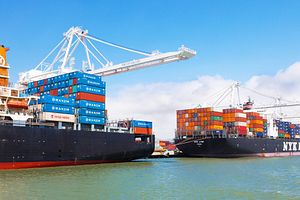The leaders of the Congressional committees with jurisdiction over U.S. free trade agreements released a bill last week that would grant the Obama Administration the up or down vote necessary to “fast track” Trans Pacific Partnership ratification. The bill triggered determined opposition from among the president’s own Democratic colleagues.
And so began an arduous political battle that will determine the fate of the TPP and the Administration’s trade agenda in general. Ways and Means Committee chairman Dave Camp (R-MI), joined by Senate Finance Committee chairman Max Bauchus (D-MT) and ranking member Orrin Hatch (R-UT), released a bill on Thursday detailing “Trade Promotion Authority” (TPA) saying, “The TPA legislation that we are introducing today will make sure that these trade deals get done, and get done right. This is our opportunity to tell the Administration – and our trading partners – what Congress’ negotiating priorities are…”
While every previous free trade agreement has been ratified under this authority, the arcane legislative tool remains controversial among members of both parties who oppose it on the grounds that it effectively waives the right of Congress to amend any free trade agreement under consideration, allowing them only an up or down vote on the final negotiated text. TPA has drawn the ire of conservatives and liberals alike, with many on the right claiming it cedes undue authority to the Executive branch while some on the left voice concerns about inadequate labor, environmental and human rights protections in agreements that they are unable to amend. Though the introduction of TPA legislation indicates the Administration feels it is close to concluding TPP negotiations, questions about both the structure of the final agreement and their ability to successfully push through its passage remain.
The agreement, which consists of 29 chapters covering everything from textiles and pharmaceuticals to the treatment of state-owned enterprises, has experienced repeated delays as countries have been forced to make increasingly difficult concessions on the unresolved policies. Recent leaks have detailed the substantive differences between countries on the approach the agreement takes to intellectual property specifically and the treatment of other issues more generally. While these disagreements are not necessarily a surprise, the delays that they cause call in to question the feasibility of the participating countries to commit to what they call an “ambitious, comprehensive and high-standard agreement.” That said, while announcing the latest missed deadline in December 2013, the ministers and heads of delegation for the TPP countries struck an optimistic note citing “substantial progress…identif[ying] potential “landing zones” for the majority of key outstanding issues in the text.”
Whether or not these “landing zones” can be agreed to, questions remain regarding the domestic political viability of the TPP as participating countries now begin to focus on selling the agreement. While long-standing opposition in Japan from agricultural interests has yet to temper the Abe Administration’s enthusiasm for the free trade pact, a December 2013 poll revealed that “33% say TPP will be very or somewhat good and 36% say very or somewhat bad.” Malaysia, which recently balked at the TPP’s treatment of state-owned enterprises given their government contracting laws, also saw protests when Secretary of State John Kerry visited in October 2013. But perhaps the least receptive environment to the TPP right now is in the United States, where the traditional division between the pro-trade Republicans and Democratic skeptics has been complicated by domestic political dynamics.
Both sides have been subject to an ongoing opposition campaign waged by labor unions and environmental organizations, which have traditionally opposed free trade agreements, with varying degrees of success. This summer, a group of 35 House Republican Freshmen sent a letter to the then- newly confirmed US Trade Representative voicing their support for both the TPP and TPA. More recently however, a coalition of Republicans from union-heavy districts partnered with a small group of Tea Party conservatives to announce their opposition to TPA in mid-November, joining 151 members of the House Democratic Caucus who had done the same in a separate letter. And, in a sign of how little consensus exists in Congress on this issue at the moment, Sander Levin (D-MI), the ranking Democrat on the Ways and Means Committee, broke with the other sponsors of the TPA bill and plans to introduce a competing version of his own.
Taken together, this means that the most strident opposition to the Obama Administration’s trade agenda is coming from within its own party and traditional allies, meaning that they will likely be forced to rely on Republicans to pass the recently introduced legislation. As the Administration attempts to secure votes in the coming weeks, their commitment to both the TPP and the U.S. trade agenda more generally is sure to be tested.
John VerWey is a Program Assistant at the American Enterprise Institute.

































